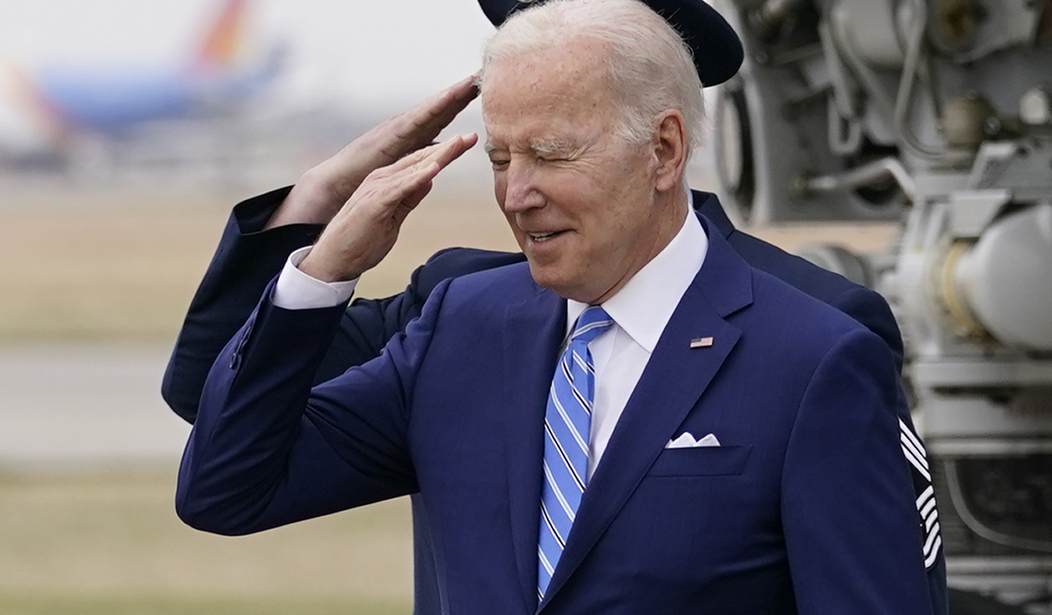Joe Biden’s body is still warm, but the vultures in his own party are already picking at his carcass.
Somehow, all the grand plans, all the hopes and dreams of radicals, and all of the fantasies of Democratic partisans about creating an unbeatable, permanent Democratic coalition have fallen by the wayside, and a serious dose of political reality has smacked them all upside the head with a two-by-four.
Democrats are currently engaged in a somewhat unseemly competition to see who ends up getting the blame for the failure of Biden’s agenda. Specifically, the ignominious end to the “Build Back Better” bill that Democrats firmly believed could have brought them to the promised land of a permanent majority.
Who’s to blame for that debacle? It depends on which Democrat you ask.
The White House blames it on the difficulties of uniting the slimmest of Democratic majorities, including a 50-50 Senate, and media framing of the initial legislation. Moderate Democrats blame progressives for fueling unrealistic expectations. Progressives blame moderates for working against Biden. Some blame Senate Majority Leader Chuck Schumer or Sen. Joe Manchin of West Virginia. Other Democrats say leaders made a tactical error by splitting off the infrastructure bill.
And still others fault Biden and his team, saying they erred in branding Build Back Better as a big, bold, once-in-a-generation — read: expensive — piece of legislation and by trying to, as one Democrat put it, “placate everybody.”
Another Democrat placed fault with the current polarized political climate, saying: “It’s the process.”
This kind of circular firing squad plays right into the hands of Republicans, of course. For the GOP, it’s a target-rich environment. Republicans can just close their eyes and open fire. They’re sure to hit someone.
In truth, the problem has always been as plain as day. The vast majority of the American people — including many Democrats — never wanted a multi-trillion-dollar spending bill to “transform” America.
They sorta like America just the way it is, thank you. John LaBombard, the former communications director for Sen. Kyrsten Sinema (D-Ariz.), explains.
Some Democrats, including in the administration, conceded early on that the initial $3.5 trillion Build Back Better Act was less a realistic legislative endgame and more a blueprint of the president’s priorities — a mixture of his campaign pledges and measures aimed at drawing a contrast with Republicans. It was a starting point for negotiations, they say.
But that’s not how it was sold to the public.
LaBombard, who left Sinema’s office in February to become senior vice president at the public affairs firm ROKK Solutions, said the decision to “focus on how many trillions of dollars of taxpayers’ money is going into a bill” that needed to pass on a party-line basis was not “a strategy designed to earn support from our caucus’s moderates,” even if it had “meritorious and important policies.”
Originally, Sen. Bernie Sanders (I-Vt.) casually proposed a $6 trillion “infrastructure” bill to cover both the physical infrastructure as well as the “human infrastructure” — as Democrats dubbed it. It was really just an extraordinary payoff to every group that supported Biden during the 2020 election as well as every radical proposal to alter the character of the United States.
Most Democrats gulped hard and decided that a far more modest $3.5 trillion bill would do the trick. That’s when Sen. Joe Manchin (D-W.Va.) entered the picture. Manchin said he couldn’t support a bill that big and Democratic negotiators began to whittle it down to something Manchin could support.
Eventually, Manchin said no because, by this time, inflation was headed into the stratosphere. So now Democrats are pondering a much smaller, far less ambitious BBB bill with the goal of finally getting the West Virginia senator on board.
Manchin has indicated a willingness to sign on to a much-reduced package of goodies. But whatever electoral advantage Democrats would have hoped to gain from passing a huge bill has fallen by the wayside as Democrats will continue to ask “Who Lost the Biden Presidency?” all the way to the 2024 election and beyond.










Join the conversation as a VIP Member